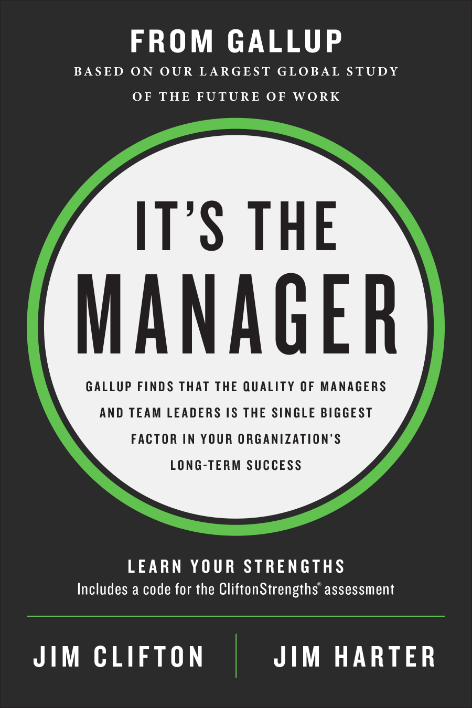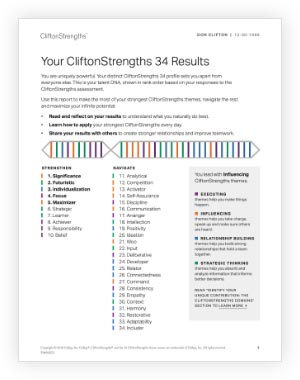Story Highlights
- Soft skill development is increasingly gaining attention
- A thriving workplace is home to employees with soft skills
- Hiring managers should focus on the innate traits of candidates
Chances are, for every 10 supervisors you've had throughout your career you'd probably want to work for only two or three of them again. And that's if you're lucky.
The ways in which people get along and work effectively together to get work done are often called "soft skills."
There is a lot of chatter these days in business and academia alike about how to cultivate soft skills.
Many universities are branding themselves as a place for their graduates to build a range of soft skills. Others are wrestling with the question of how best to equip students with soft skills. And hiring managers are contemplating how best to sort through the pool of candidates to identify those with the needed soft skills for the job.
As a CHRO, should you care?
The answer is yes! As the chatter indicates, thriving workplaces depend on the sorts of interpersonal skills these soft skills represent.
Soft Skills in Action
Managers may furrow their brows about how best to find the candidates with these elusive soft skills, but soft skills are not as hard to identify when we consider our own experiences in the marketplace. As customers, we feel the difference when we're working with someone who is naturally service-oriented. It is being warmly greeted at the hotel front desk when checking in versus lining up behind a group of weary travelers, while a receptionist who is on the phone looks the other way or steps away from the desk.
And as Gallup's book It's the Manager points out, "Chances are, for every 10 supervisors you've had throughout your career, you'd probably want to work for only two or three of them again. And that's if you're lucky."
This rings true because we can feel the difference in working for a manager who is naturally inclined to inspire and motivate people. In the workplace, we know that the best managers naturally inspire teams to get exceptional work done.
In the same way, the very best front-desk clerks leave customers feeling welcomed and cared for.
But, while there seems to be alignment about the need for these skills, and despite how we can feel the difference when they are there, there doesn't seem to be much alignment about exactly what they are or how to measure them perfectly.
So, what if leaders pivot and take the conversation about soft skills in a new direction?
Here is how that could happen.
At Gallup, we've been in the business of measuring what we refer to as "talent" for 50 years.
Connecting Soft Skills to Natural Behavior
Gallup views this as the natural capacity for excellence, and we measure it using scientific assessments that evaluate naturally recurring patterns of thought, feeling and behavior that can be productively applied.
How does this relate to the conversation about soft skills? While these assessments do not measure soft skills per se, they do measure for innate predispositions for certain behaviors. As people are predisposed to certain ways of thinking, feeling and behaving, measuring such behaviors can be one way to get a line of sight into how future candidates are likely to perform in certain areas and can give hiring managers a heads up about what role-specific behaviors to expect when they hire candidates.
Rather than focusing on soft skills, employers may consider what natural tendencies or behaviors candidates bring to the table instead.
In other words, we measure the stable behaviors that people exhibit, and we believe that people's natural dispositions are consistent from one situation to the next.
Such behaviors fall into five broad categories or "dimensions."
Motivation: drive for achievement. In other words, what gets a person going?
Workstyle: organizing work for efficient completion. Or, what does this person's work process look like?
Initiation: taking action and inspiring others to succeed. This dimension answers the question, how does this person influence others?
Collaboration: building quality partnerships. How does this person build relationships and approach working with others?
Thought Process: solving problems through assimilation of new information. How does this person tackle the problems they are presented with?
These dimensions break down into further categories, which give additional insight into individual behavior.
After studying the best in roles, based on performance, standard assessments are built to sort to behaviors and tendencies that align with known excellence in role performance. So, when applied as a part of a holistic program, leveraging such assessments can help employers to select for behaviors that mimic those of their best performers over time.
Change Directions -- Focus on Innate Traits
Gallup experts offer advice to hiring managers based on the assessment results while considering the style of the manager and the needs of the team. These experts can also suggest how best to set newly hired candidates up for success and enable the managers who will be investing in them to better support the new employees. In other words, a program like this helps managers align human potential with the opportunity that suits it from the start.
So, one way for employers to tackle the soft skills dilemma is to move the conversation in a new direction. Rather than focusing on soft skills, employers may consider what natural tendencies or behaviors candidates bring to the table instead.
Focusing on innate traits that are linked to role performance in concert with other things, such as evaluating experiences and achievements, and interviews or on-the-job observations, will help hiring managers get a head start and set everyone up for success when making the next hire. Hiring in this way also leads to important business outcomes, including increases in profitability, sales and productivity. And reductions in key problem areas such as turnover and unscheduled absences.
So, with this approach, if you're the leader in charge of staffing the front desk of your hotel chain, you'd be more likely to hire those who will naturally enjoy and stay attentive to the weary customers arriving after a long travel. And, if you're hiring for managers, you'd be more likely to hire those who will naturally enjoy inspiring your teams to achieve high performance.
Pivoting the conversation away from soft skills to instead focus on natural tendencies and behaviors -- and then including that focus as part of your holistic hiring process -- will give you a leg up when tackling your own soft skills dilemma.
Tackle the soft skills dilemma in your organization with analytics-based hiring and build a strengths-based culture with CliftonStrengths:
- Gallup helps your company make better hiring decisions, put the right people into the right roles with our hiring solutions.
- Watch this on-demand webinar, Designing Your Organization's Employee Experience, to develop the EX starting with attracting and hiring the right talent.
- Check out our CliftonStrengths solutions and connect them to your hiring process through analytics-based hiring.
- Read Gallup's perspective on how to create a strengths-based organizational culture with five steps to get you started.





